PHAST trip to Grenada improves blood donation systems, teaches lesson on altruism in public health practice
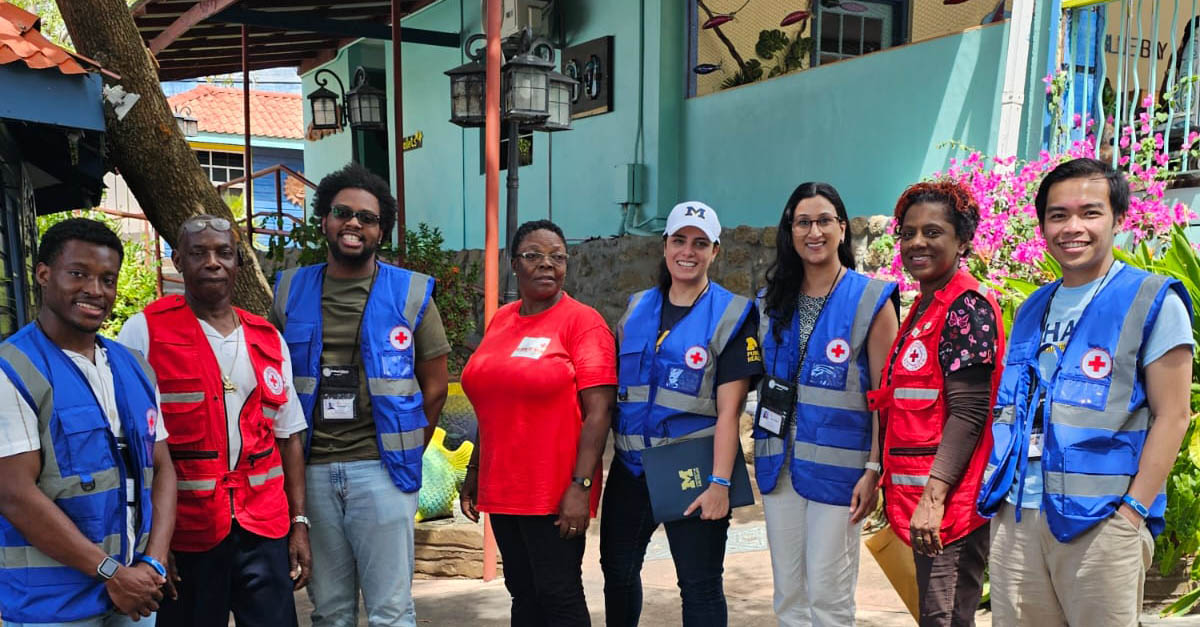
Darius M. Moore
Master of Public Health Student, Health Behavior and Health Education
During spring break this past February, I participated in an experiential learning opportunity in Grenada, offered through the Public Health Action Support Team (PHAST) at the University of Michigan School of Public Health. This opportunity is designed to prepare and provide students with a week-long international practice-based experience that addresses existing and emerging public health priorities as defined by the community partners in Grenada.
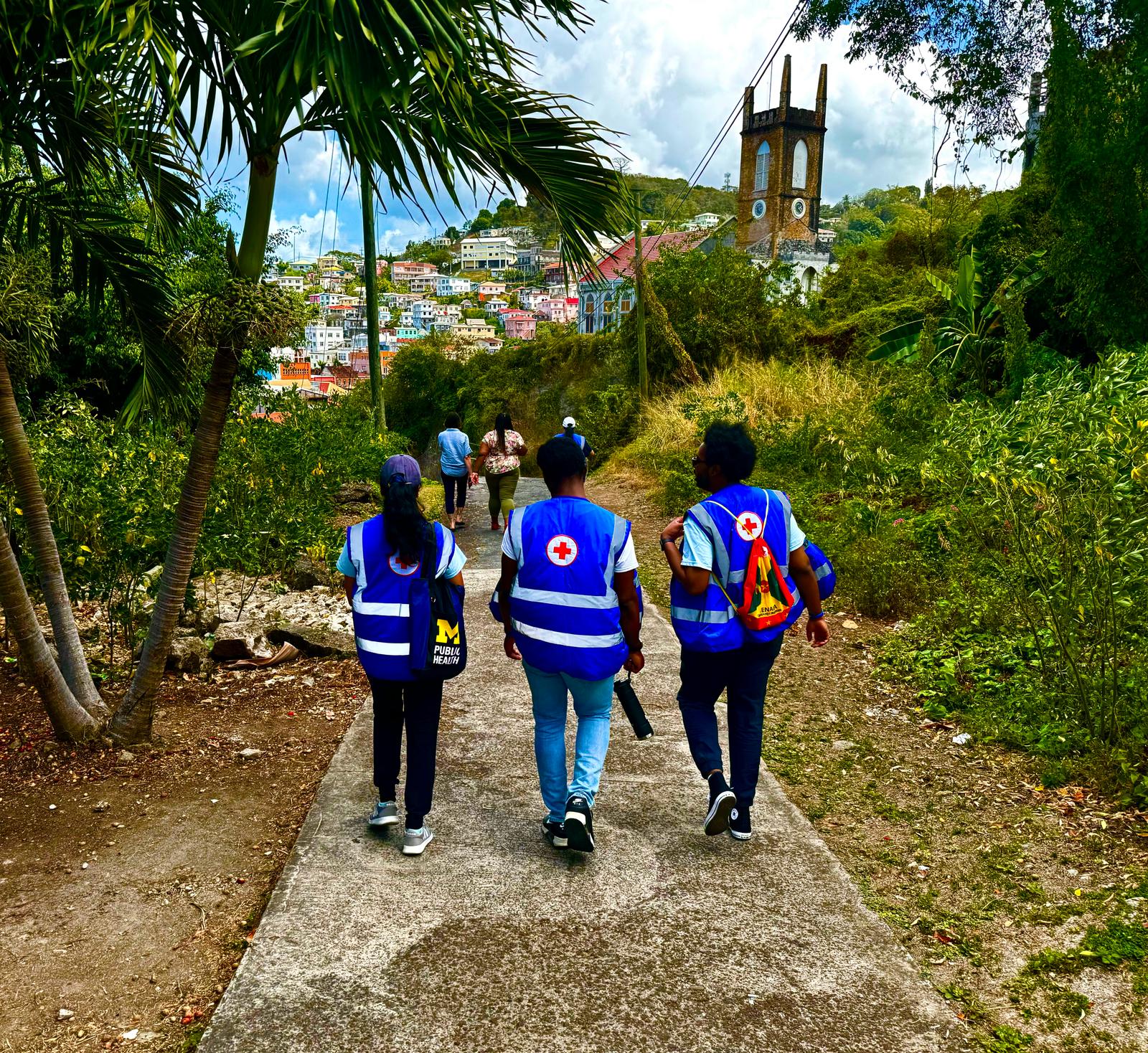
While there, my team and I were paired with the Grenada Red Cross Society (GRCS) on a new project to establish a voluntary, non-remunerated donation (VNRD) model for blood donation on the island. This model is identical to the one we have in the United States, whereby individuals volunteer to donate blood without compensation. Similar to other low- and middle-income countries, Grenada currently relies on a family replacement model for blood donation. This means that if a person needs blood for a procedure, including in emergencies, they must activate their social networks to find a donor.
Due to the reactive nature of the family replacement model, this system typically fails to produce a sufficient blood supply to comply with international guidelines. The unreliability of this model has forced Grenada and the GRCS to import blood from the United States and some European countries, which is an expensive and time-consuming process. Moreover, since there is an insufficient blood supply in Blood Bank of Grenada (BBG), patients who urgently need blood transfusions may have an increased risk of death and adverse health outcomes because they have to wait longer to obtain the blood from their friends or family.
A Little Adaptability Goes a Long Way
A key first step for the GRCS to establish a VNRD model was to understand the attitudes and perceptions of local Grenadians toward blood donation, which is what my team and I were tasked with doing. To achieve this goal, we would administer a community survey among local Grenadians to understand how they viewed blood donation, as well as conduct key-informant interviews among a diverse set of stakeholders to give us more in-depth information about the implementation and facilitation of a VNRD model in Grenada.
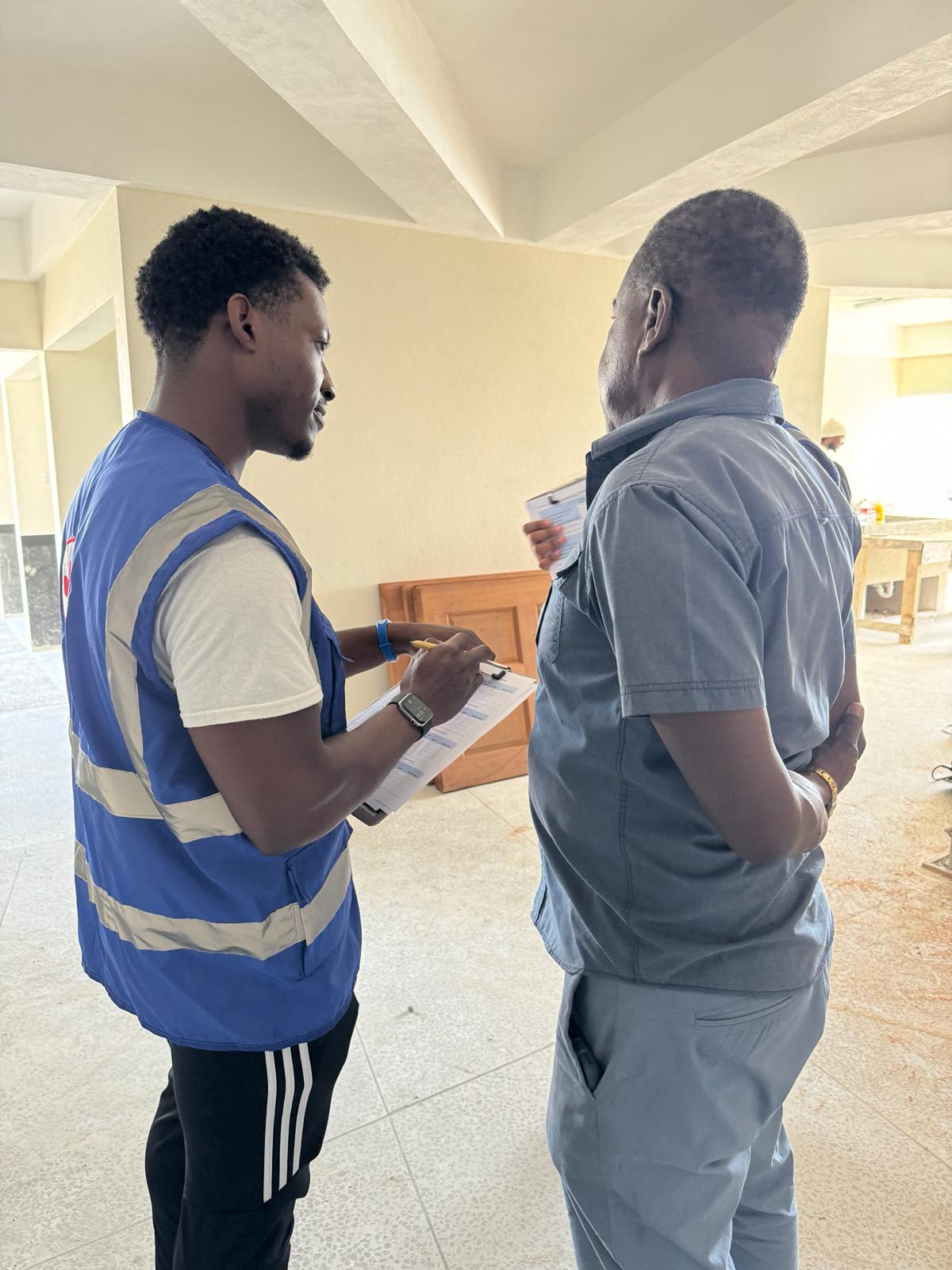
I was incredibly excited to be part of this project, as I have previously participated in data collection and on-the-ground research activities regarding health promotion for sexual minority groups in Kenya and the Dominican Republic. However, the research activities for this project in Grenada were new to me, and I was ready to expand my research skills.
Over the course of three days, we completed eight key-informant interviews and 77 community surveys. Key-informant interviews took place with several professionals and executive administrators in the fields of health, education, and disaster management. For our community surveys, we were able to capture information from Grenadian residents at a variety of settings including schools, police stations, construction sites, and spice markets.
An important aspect of community work that oftentimes goes unacknowledged or underappreciated is the need for flexibility and patience. Throughout our fieldwork, we had to shift our approach to accommodate the setting that we were in and the capacity of our participants to give their input. For example, while at the spice market, I surveyed a young woman who was eager to participate, but she also had to be attentive to potential customers and sell her products. Although she was quite apologetic for frequently stopping the survey, we appreciated each other's flexibility at that moment, understanding that a little patience would allow us both to achieve our goals for the day.
Flexibility and patience are crucial to community-based work because the needs and conditions of community members, especially those from the least privileged groups, are constantly shifting. As a result, projects and research activities will not always go as planned; however, effectively adapting to any changes will ensure that the work continues to prioritize the true needs of community members.
Saving a Life by Donating Blood
For me, one of the most impactful parts of this experience was the tour of the BBG. Although I had a baseline understanding of blood donation coming into this experience, this was my first time touring a blood bank. During the tour, we were given detailed information about how the blood is used and the steps taken to make sure it is properly screened and stored before use. It was fascinating to learn that one blood donation could save three adult lives, and that the different components of a donation could be used for various procedures. It was at this moment that I was inspired to donate blood.
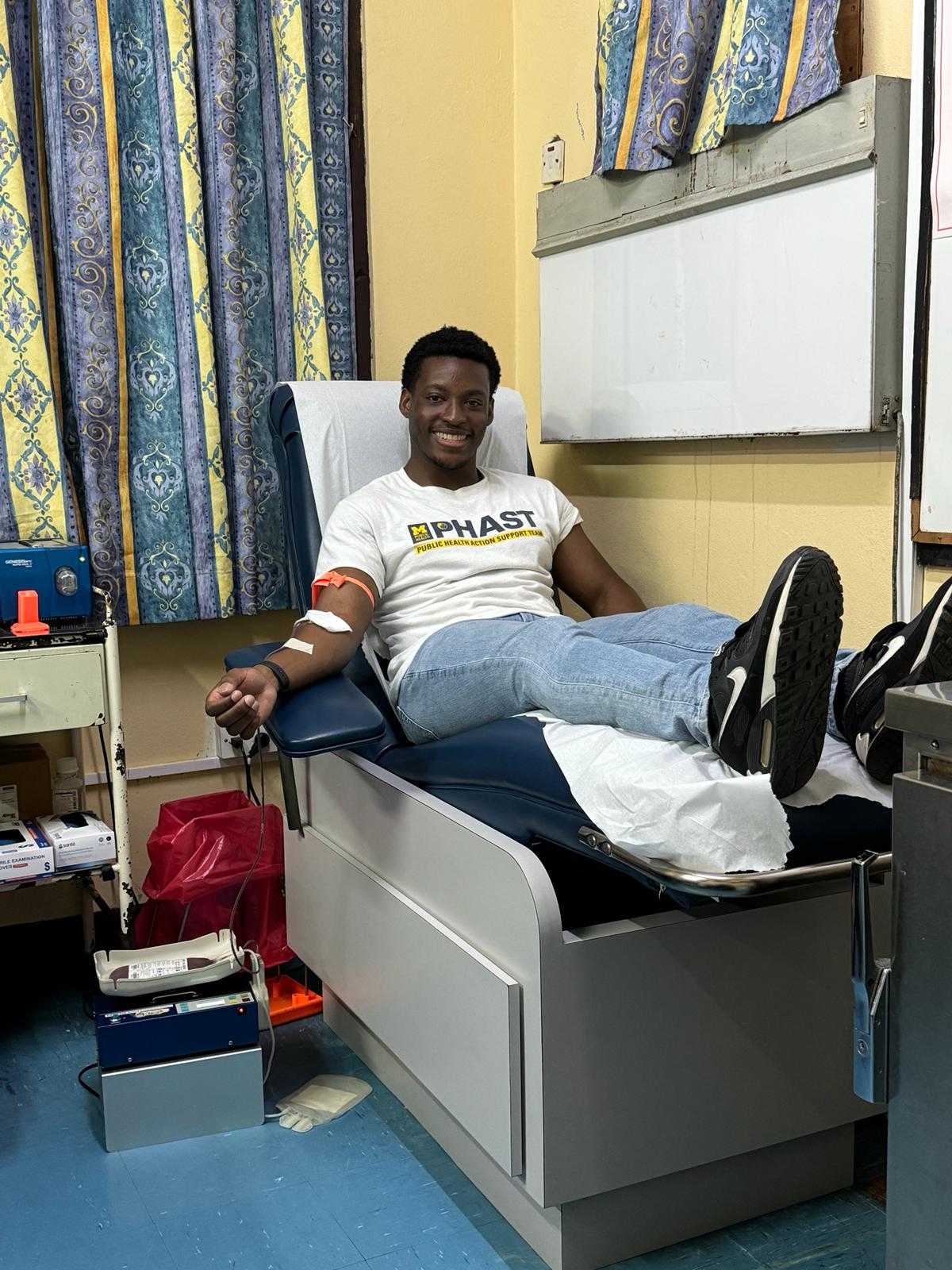
This was the first time I had ever donated blood. As a high school and undergraduate student, I was frequently exposed to school blood drives and other on-campus initiatives to boost donations. I had never participated before because I believed that the process was too time-consuming, and it was somewhat unsettling to see how drained and lethargic some people were after donating. However, in Grenada, I felt compelled to donate blood despite the possible side effects. I understood that the BBG needed donations, and I was in a position to help make a difference for them. Moreover, I wanted to help save a life, given that the GRCS frequently mentioned the severe consequences that the island was facing for not having a sufficient supply. These consequences included having to import human blood from other countries at a high cost and greater risk for death or severe health outcomes due to long wait times for blood donations.
I am beyond grateful that I decided to donate blood because my donation was used immediately to help someone. After the donation bag had been filled with my blood, the phlebotomist put my donation in the cooler and reviewed some information with me about the recovery process. Soon after, another healthcare provider came into the room requesting O+ blood, which happened to be my type, for a patient who was just admitted due to an emergency. Since my donation was still warm, the phlebotomists were able to take it immediately for screening so that it could be used for the patient.
This was truly a proud and surreal moment for me that such a small decision to donate blood led to a life being immediately saved. I am thankful for having been in the right place at the right time to be of help to that person. This experience opened my eyes to the importance of blood donation, and now, I plan to make this a regular practice in my life.
A Deeper Understanding of Community Engagement in Public Health Practice
While I understand that the work I did in Grenada is just one piece of a complex puzzle, my experiences on the island have taught me so much about the realities that we can create when leading with community-based and altruistic approaches. As a society, we are all in partnership with each other, and for us to be able to advance, grow, and lead healthy lives, we need to recognize the humanity that is within everyone, not just the people who we believe are deserving of it. For me, this is one of many principles for community-based work: not only the idea that everyone should have equitable access to resources and services in order to have positive health outcomes, but also that everyone is a part of our community and that our individual actions can impact the health and wellbeing of ourselves and others. For that reason, we should seek to make positive impacts not only for ourselves, but also for others too.
Lead image: University of Michigan PHAST students meeting with community partners from the Grenada Red Cross Society in Feb. 2024.
About the Author
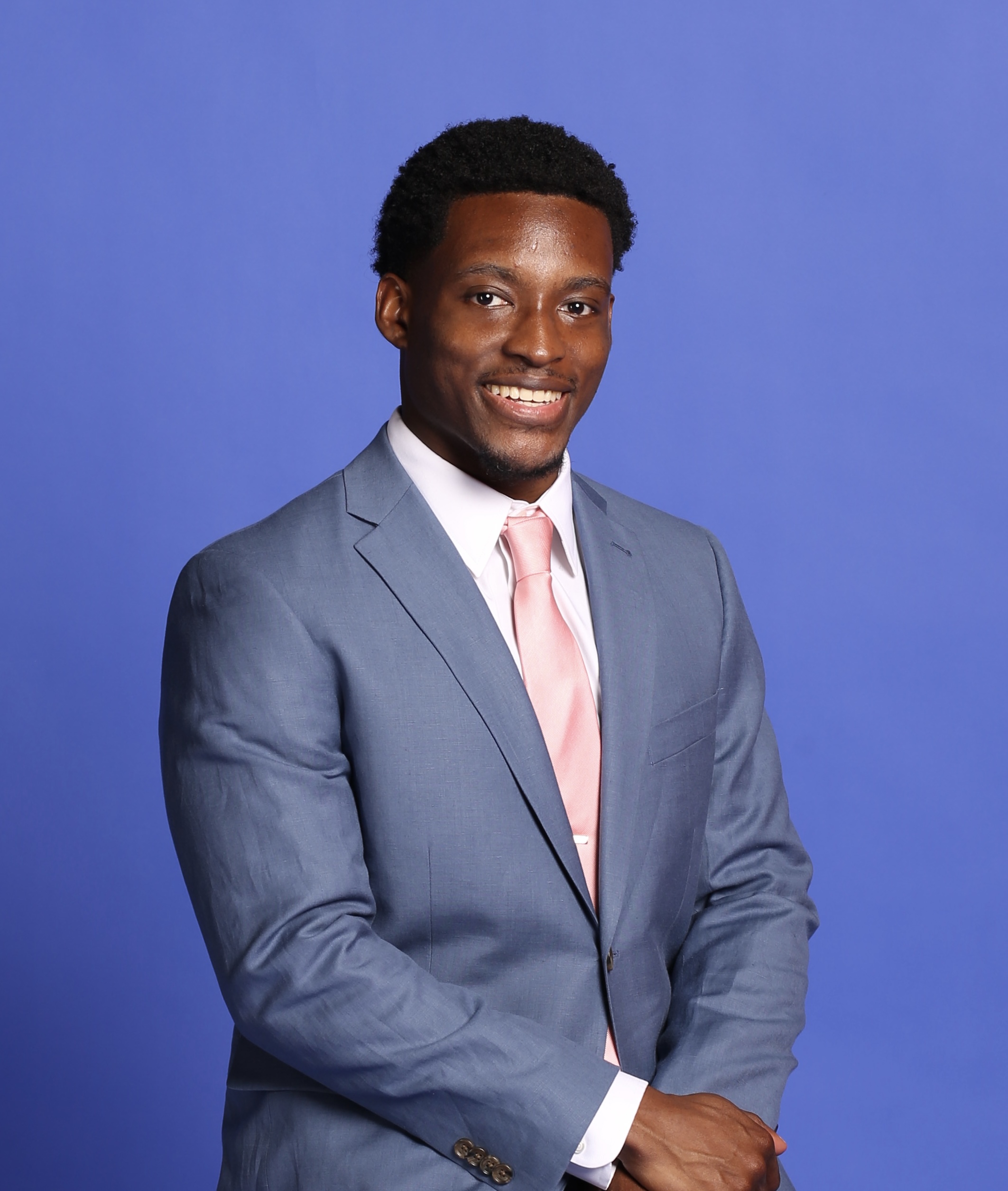 Darius M. Moore is a second-year Master of Public Health student in the Department
of Health Behavior and Health Education at the University of Michigan School of Public
Health. He is a graduate research assistant for the Resilience + Resistance Collective
(RRC) whose mission is to improve the health and wellbeing of LGBTQ+ populations by
working with local communities through research and practice. Darius is passionate
about health promotion for racial and sexual minority groups in both local and global
settings, with a particular emphasis on mental health and HIV care and prevention
efforts.
Darius M. Moore is a second-year Master of Public Health student in the Department
of Health Behavior and Health Education at the University of Michigan School of Public
Health. He is a graduate research assistant for the Resilience + Resistance Collective
(RRC) whose mission is to improve the health and wellbeing of LGBTQ+ populations by
working with local communities through research and practice. Darius is passionate
about health promotion for racial and sexual minority groups in both local and global
settings, with a particular emphasis on mental health and HIV care and prevention
efforts.
- Interested in public health? Learn more today.
- Support research and engaged learning at Michigan Public Health.
- Department of Health Behavior and Health Education
